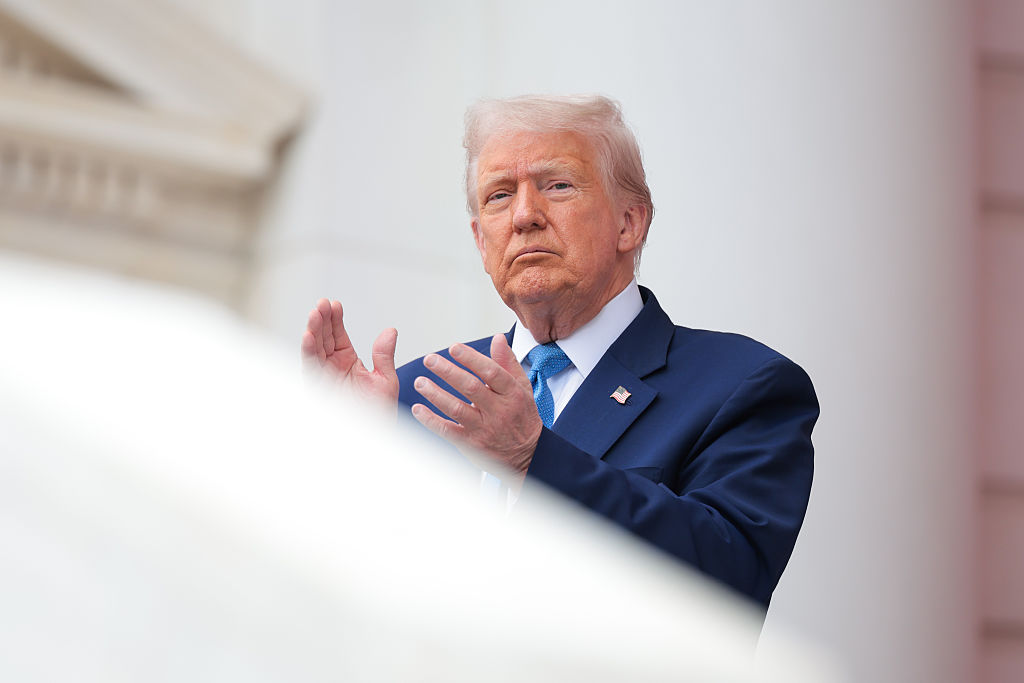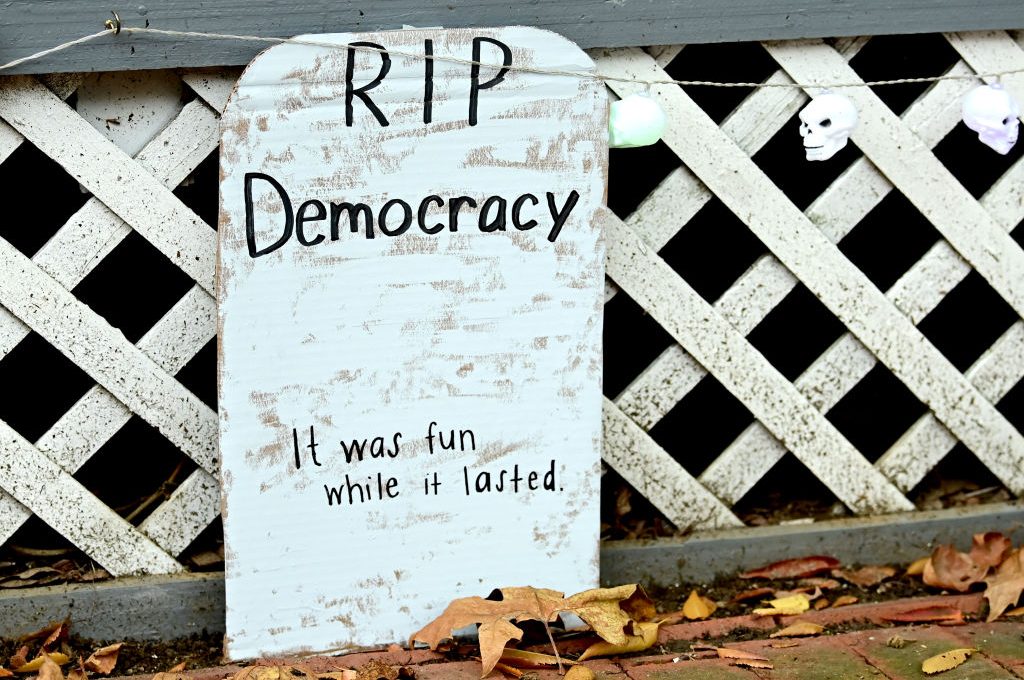If one were looking for dismal assessments of the Trump administration’s contributions to the vitality of American intellectual inquiry, the editorial eructations of Holden Thorp would likely be at the top of the list.
Thorp is the editor-in-chief of Science, the weekly journal of American Association for the Advancement of Science (AAAS). This makes him one of the most influential figures in the academy and in American science as a whole. Few weeks go by without an editorial from Thorp denouncing the havoc wrought by Trump. The May 8 issue is mildly titled, “The New Reality for American Academe,” but the mildness ends there. The editorial commences, “The endless churn of damaging actions from the Trump administration toward science – from freezing and canceling grants to ending programs that encourage greater participation in science – has wreaked havoc in American universities and reverberated around the world as worries about international collaborations and access to American scientific resources threaten the global scientific enterprise.”
Science, science, science, science – the word shows up four times in that one sentence, so that we don’t forget what is at stake. Let’s say Dr. Thorp has an interest in stoking a certain kind of panic. He is not alone. Governor Maura Healey of Massachusetts recently warned that Trump’s policies are “bad for science” and will drive American scientists abroad. Donald Ingber, founding director of the Wyss Institute for Biologically Inspired Engineering at Harvard, speaks of Trump’s “unrelenting attack on science and medical research.”
But it isn’t just Massachusetts politicians and Harvard scientists who are concerned. The august authority of Rolling Stone magazine has warned: “Brain Drain: Scientists Are Fleeing the US As Trump Cuts Funding.”
The forecasts of cultural disaster are so prolific that they may well outnumber the “little red dots” that the James Webb Space Telescope has spotted in the early days of the universe. President Trump has plainly succeeded is perturbing the complacency of comfortably grant-funded seekers of nature’s deepest secrets.
But let me focus for a moment on the chief seeker-in-chief. Dr. Thorp is a 1986 graduate of the University of North Carolina, where he earned his undergraduate degree in chemistry, before completing his PhD at Caltech in 1989 and doing a post-doc at Yale. His record of youthful accomplishment was impressive, and it says something of his aplomb that as a child he played on stage in regional theater and before college he spent a summer studying guitar at Berklee College of Music. His skills in acting and music continue to serve him.
I met Dr. Thorp only once a few years ago when he stopped briefly at a booth I was manning at the annual meeting of the AAAS. He hurried away when he realized that skepticism about DEI, climate change, massive federal funding and Big Science might be found. But I don’t blame him. His life is built around these causes and he need not squander time on non-believers. The question at hand is whether he is right about the state of affairs that now confronts American science.
His gloomy editorial actually achieves a measure of optimism. He writes that Americans as a whole still love higher education and “70 percent of the public opposed reduced funding for biomedical research.” What’s needed, he says, echoing Harvard philosophy professor Danielle Allen, is for science faculty to show more appreciation to the masses. Presumably we masses will respond by restoring those grants to Harvard profs and ditching ideas such as capping overhead rates at 15 percent and taxing engorged endowments.
Thorp’s editorial was followed in that issue of Science by a procession of doleful articles. (I’ve imitated the typography which might be in FRANTIC CATACLISMIA):
Trump Proposes Massive Cuts to research Spending
NIH Bans Future Grant Sharing with Foreign Scientists
Report Questions Trans Care
Harvard Barred from Grants
NIH Dismantled Training Pipeline for Deaf Researchers
Trump Slashes Studies of Online Lies – And How to Counter Them
How Trump UPENEDED SCIENCE: A chaotic 100-day push to remake federal research will have lasting consequences
NIH under SIEGE: Agency scientists say Trump’s assault has left the health institutes demoralized and diminished, their future uncertain
The Human IMPACT: Behind the myriad upheavals US science has faced during the first 100 days of President Donald Trump’s administration, countless researchers are fighting for their careers and aspirations (The stories include “Equity in Jeopardy,” “Goodbye Research Dreams,” “Data Blackout” and “PhD Interrupted.)
The Next 100 DAYS: Budget fights and court rulings could shape Trump’s science agenda
I should add that this is not a one-off display of “Mars Attacks” panic, but a more or less weekly feature of America premier science journal. It seems that under Dr. Thorp’s steady hand, we are all doomed. Cancer would have been cured. Global warming chilled. Interplanetary peace ordained. But for Donald Trump.
I don’t have the space or inclination to deal with all these charges ad idem, but I’d like to venture a few general points. First, some of the “science” de-funded by Trump amply deserves to be eliminated. Funding diversity, equity and inclusion projects as science is mislabeling on the order of packaging sawdust as building material. The legions of personnel who conjured and enforced the national shutdown as a public health measure in the face of Covid were not practicing science. They were playing with compliance. Multitudes of federally funded research projects were and are trivial, redundant or just wrong-headed. The majority conjure irreproducible results that are created either to preserve the favor of bureaucrats who want to advance a regulatory agenda and need the façade of “science” to justify it.
Second, Trump hasn’t launched a general war on science. Rather, he has used the over-dependency of universities on federal research dollars as a lever to get them to comply with his executive orders on DEI and antisemitism. The funding for truly important research will be restored the moment that Harvard and other recalcitrant institutions decide to comply. The Holden Thorp Hysteria is an attempt to hold onto the illegitimate programs and projects by making it seem the whole boat is sinking. It is not. If there is a cure for cancer in the offing it isn’t going to languish for lack of NIH funds.
Third, there is no law of nature that says all scientific research needs to be underwritten by federal tax dollars. For most if human history, including the scientific revolution, people sought out new knowledge and invented new drugs, machines and processes without federal funding. The explosion of such funding after Sputnik has led to oceans of stagnation in which occur small islands of innovation. We might well have more and better innovation on a trimmer R&D budget.
And last, a huge portion of the results of our federally funded science research flows unimpeded across the waters, often to our adversaries. China has aggressively mined American research for its own advantage, sometimes stealing intellectual property outright, sometimes acquiring it by enrolling inquisitive students in out sensitive programs and often by seducing members of our research faculty and even whole research programs with funding. China is not the only player in this arena but it is the dominant one.
And not a word about that from Dr. Thorp who is a champion of science as a shared international endeavor, cooperative inquiry and American funding of foreign scientists. There may be prudent ways to go about such things, but you generally won’t find them in American universities, where a little bit of funding from a foreign source will often yield millions or even billions of dollars in research paid for by the American taxpayer. How did China vault from last place among world powers in space exploration to near the front of the line? Not by means of homegrown research. Until we solve that problem, I will be content to see Trump pursue his so-called “unrelenting attack.”


























Leave a Reply